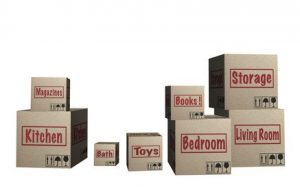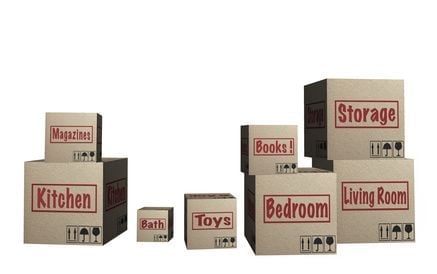 Moving can be a stressful time, no doubt about it. Family, friends, errands, kids, pets, utilities…the list seems never-ending. While we can’t wave a magic wand and take a way all those responsibilities, we’re hoping to ease that stress just a little by providing you with our Top 10 Moving Tips:
Moving can be a stressful time, no doubt about it. Family, friends, errands, kids, pets, utilities…the list seems never-ending. While we can’t wave a magic wand and take a way all those responsibilities, we’re hoping to ease that stress just a little by providing you with our Top 10 Moving Tips:
INVENTORY: Take inventory of all furniture, electronics and other important items in each room so you can do a quick checklist upon arrival at your new home. Not only is this helpful for moving, it’s a great idea to keep this list for insurance purposes.
MOVING TIMES: Consider that peak moving times are from May to September, so book as far out as possible during those months. Also remember that weekends and the beginning of the month are busy times as well. If it’s possible to move mid-week, you’ll usually find that more options are available.
ADVANCED PACKING: Pack as far out as possible, beginning with seasonal items and things you only use every few months. As moving day nears, pack everything except those essential items you will be taking with you in your personal vehicles. Use brightly colored shipping tape for the boxes you’ll need access to first, such as bathroom supplies, kitchen necessities or bed linens.
LABELING: Label all boxes according to their contents AND the room they will be assigned to. This makes the move-in process much easier and also lets your movers know which room the items should go into upon arrival at your new home. This way, you’re not stepping around a barrage of boxes that are gathered in one area of your home…they will be delivered to the area where they will be opened and used. When packing personal items which will be in a vehicle with you (not on the moving truck), make sure to label those with ‘Do not move’ so the movers know to leave those behind with you.
UTILITIES: Call utility companies at least two weeks in advance (gas, electric, water, sewer, garbage–and don’t forget the cable!) so your services are in place and functional when you arrive.
ADDRESS CHANGE: Fill out a change of address form (at the post office or online) so your mail automatically forwards to your new address. Remember that most companies do not change your address permanently based on the post office re-direction, so it might be a good idea to send a ‘moving’ card to all the companies you do business with or change your address online with each.
ERRANDS: Some important wrap-up errands include returning library books and picking up physical documents (from your physician, your child’s school, etc.) that you may need in your new location. Remove any items from your safe deposit box to take with you. Refill any medical prescriptions to allow for at least a month’s supply while you find a new physician and get your medical records transferred.
NEEDS CHECKLIST: Make a running list of items you’ll need for your new home. I use the Evernote app for recording notes, photos and audio to remind me of almost everything. Evernote can be accessed by computer, tablet or smart phone and automatically syncs regardless of which device you use to enter the information. This way, your needs are recorded all in one place and travel with you everywhere…whether you need a curtain rod for the family room or an umbrella for your patio.
MEASUREMENTS: Take measurements of rooms, doorways and windows in your new home. That way, when you’re shopping for furnishings, you’ll know what fits before you buy. This can save you several ‘return item’ trips! You can record these in your smart phone app, too.
VERIFY: Finally, verify the moving date and details with your moving company at least a week prior to the move, including time of arrival, estimated load time, estimated travel time and time of arrival at your new location. Exchange mobile numbers with the moving staff just in case. This will ensure clear communication and ease the stress of moving.
————————
Michael Carr is the Co-Founder & COO of BrandFace, LLC. He is also a real estate branding expert and international bestselling author. As America’s Top Selling Real Estate Auctioneer, he has sold billions of dollars in commercial and residential properties.







